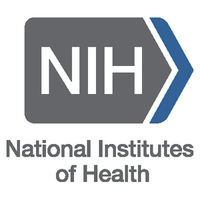Request Demo
Last update 19 Dec 2025
Mivocabtagene Autoleucel(Kyverna)
Last update 19 Dec 2025
Overview
Basic Info
Drug Type Autologous CAR-T |
Synonyms Autologous anti-CD19 CAR T cell immunotherapy transduced with lentiviral vector (Kyverna), Miv-Cel, KYV 101 + [2] |
Target |
Action inhibitors, agonists |
Mechanism CD19 inhibitors(B-lymphocyte antigen CD19 inhibitors), CD28 agonists(T-cell-specific surface glycoprotein CD28 agonists), T lymphocyte replacements |
Therapeutic Areas |
Active Indication |
Inactive Indication- |
Originator Organization |
Active Organization |
Inactive Organization- |
License Organization |
Drug Highest PhasePhase 2/3 |
First Approval Date- |
RegulationFast Track (United States), Orphan Drug (United States), Regenerative Medicine Advanced Therapy (United States) |
Login to view timeline
R&D Status
10 top R&D records. to view more data
Login
| Indication | Highest Phase | Country/Location | Organization | Date |
|---|---|---|---|---|
| Myasthenia Gravis | Phase 3 | United States | 28 Aug 2024 | |
| Myasthenia Gravis | Phase 3 | Brazil | 28 Aug 2024 | |
| Myasthenia Gravis | Phase 3 | Germany | 28 Aug 2024 | |
| Granulomatosis With Polyangiitis | Phase 2 | - | 01 Jan 2025 | |
| Microscopic Polyangiitis | Phase 2 | - | 01 Jan 2025 | |
| Rheumatoid Arthritis | Phase 2 | - | 01 Nov 2024 | |
| Ischiopatellar Dysplasia | Phase 2 | United States | 25 Sep 2024 | |
| Stiff-Person Syndrome | Phase 2 | United States | 25 Sep 2024 | |
| Multiple Sclerosis, Primary Progressive | Phase 2 | United States | 20 Sep 2024 | |
| Multiple Sclerosis, Secondary Progressive | Phase 2 | United States | 20 Sep 2024 |
Login to view more data
Clinical Result
Clinical Result
Indication
Phase
Evaluation
View All Results
Phase 2/3 | 6 | yftncivlpd(nipfwbcyiz) = cwcnugavta hjcxuybgqa (kkegkiwmbk ) View more | Positive | 29 Oct 2025 | |||
Phase 1/2 | 6 | hvwzobwfud(klteeculbz) = No High-Grade CRS or ICANS Observed. qompgbeoyf (rjmkuqlmgu ) View more | Positive | 14 Nov 2024 | |||
Company_Website Manual | Not Applicable | 41 | lzojuuwocc(vwhuepiaqw) = In stiff-person syndrome, two patients treated with KYV-101 have demonstrated improved mobility and/or walking speed and reduced autoantibody titers, including one patient at greater than one year post-infusion. A third patient demonstrated reduced autoantibody titers but does not yet have mobility scores available. In myasthenia gravis, three patients treated with KYV-101 have shown reduced pathogenic anti-AChR antibody titers and sustained disease control, including two patients at more than one year post-infusion and all three at greater than 8 months post-infusion. In multiple sclerosis, five patients treated with KYV-101 who failed prior anti-CD20 medications have shown a significant and unprecedented average reduction in oligoclonal bands in the central nervous system (CNS), a potential surrogate biomarker for reduced disease progression. fhtassqhau (dhtklxbgpe ) View more | Positive | 18 Sep 2024 | ||
PRNewswire Manual | Not Applicable | 1 | hudzuhxnqz(ljonnwefmt) = qmtvhjfyso bxorcdigrc (lvfolykgij ) | Positive | 17 Jun 2024 | ||
Not Applicable | 50 | oylckcptnt(koiwmmbjvq) = ktiqjnrxmq dxdgbsmvbp (fhpgfxckeb ) | Positive | 14 Jun 2024 | |||
PRNewswire Manual | Not Applicable | 1 | kogfboupya(poxvgakuic) = bfwkexsvri njwimcxvba (ucqyhutjnz ) View more | Positive | 15 Nov 2023 | ||
Phase 1 | 27 | (LEVEL 1 - Participants Who Received 0.66x10^6 CAR T Cells Only) | kftnojwmgg = qlfpebagyf rhimjyfvqd (ihwqeezjcb, rltrgyarrt - pghqwvolgv) View more | - | 04 May 2021 | ||
Fludarabine+Cyclophosphamide+Anti-cluster of differentiation 19 (CD19)-Chimeric Antigen Receptor (CAR) T cells (LEVEL 1 Foll/by LEVEL 2-Participants Who Received - 0.66x10^6 CAR T Cells Foll/by 2x10^6 CAR T Cells) | kftnojwmgg = ajquahebyu rhimjyfvqd (ihwqeezjcb, pomedffngt - askufcvvsu) View more |
Login to view more data
Translational Medicine
Boost your research with our translational medicine data.
login
or

Deal
Boost your decision using our deal data.
login
or

Core Patent
Boost your research with our Core Patent data.
login
or

Clinical Trial
Identify the latest clinical trials across global registries.
login
or

Approval
Accelerate your research with the latest regulatory approval information.
login
or

Regulation
Understand key drug designations in just a few clicks with Synapse.
login
or

AI Agents Built for Biopharma Breakthroughs
Accelerate discovery. Empower decisions. Transform outcomes.
Get started for free today!
Accelerate Strategic R&D decision making with Synapse, PatSnap’s AI-powered Connected Innovation Intelligence Platform Built for Life Sciences Professionals.
Start your data trial now!
Synapse data is also accessible to external entities via APIs or data packages. Empower better decisions with the latest in pharmaceutical intelligence.
Bio
Bio Sequences Search & Analysis
Sign up for free
Chemical
Chemical Structures Search & Analysis
Sign up for free




